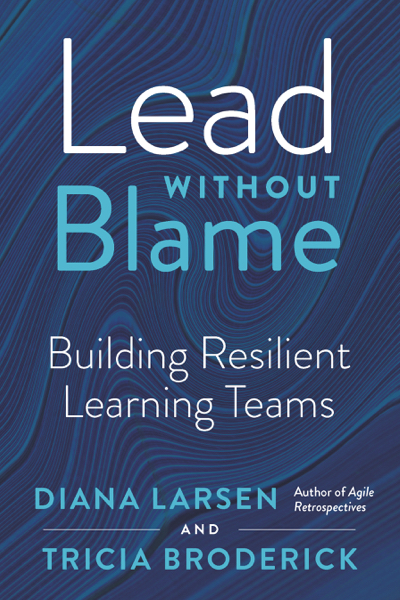Now since one of my goals is short posts, this is not an all encompassing post about feedback. I want to focus in on a specific topic within feedback: the dangers of indirect and/or anonymous feedback.. I’m sure there are some pros to both of these but I want to share the potential negative impacts.
Let’s use a scenario approach to walk through this:
A QA Manager has a conflict with a developer on the team. The QA Manager escalates the concern to the developer’s manager: that this developer talks down to QA. The developer’s manager asks for specific examples and agrees to have a conversation with the developer. They meet.
- Even if the developer agrees that the example was inappropriate (maybe having a bad day), this is now ESCALATED. The developer wonders why the QA person didn’t just say something directly. They might wonder if and when the next time something will be escalated. Trust is broken.
- Plus, does this developer approach the QA person? They were not comfortable talking directly, how much more uncomfortable is it when you have to approach someone that you both know it was ESCALATED.
- Now maybe the goal wasn’t escalation. Maybe the QA person was venting and the manager took action. But the action needs to be helping them talk directly, or a small conflict can become much larger and lasting.
- Now, if there are concerns because they have tried and failed previously and this needs to be escalated. Or that this is an HR problem that truly needs to be dealt with, then I would hope a manager is witnessing this first hand so the feedback is no longer that the QA person is raising this concern but management is raising this concern. As a leader, you have to own HR related feedback. Otherwise, it can be easy for a person to deflect and feel unfairly judged when they can’t discuss the concerns with the person raising the concern.
This leads into the second scenario:
A manager decides that getting feedback from various people for an individual is valuable (I would agree). They send out an anonymous survey. The results are tough to read and not flattering.
- This could result in the feeling of betrayal. Now one could argue, that if you had no clue then you needed this awakening. However, if your goal as a leader is to help someone take ownership of their growth within teams, this is not the best means to achieve those ends. People accept feedback better from a person. A person that they can see has good intent and wants them to succeed. A person that is being vulnerable by sharing the feedback too. Not a line of text. It’s impersonal and difficult to understand. You don’t always get context or examples. What does a person do with just receiving the line “you talk down to people”. Unless you believe they do it intentionally and maliciously – at which point you probably have a much bigger problem with this person, they don’t realize what the perception is versus their intention. They need to talk through to understand why they don’t align.
- Most of all as a manager, never give feedback to an employee like “Others say you talk down to people, but I don’t think that’s true”. What do they do with that? Ignore the feedback, not easy. They will stew and wonder who said it and why. Judge the team for saying it since your manager thinks it’s nuts. If you don’t agree, do the work to understand why there is a different opinion. That’s your responsibility.
The more you help people communicate feedback directly, the faster they will become a team and handle them without you. They will still need to escalate at times but it won’t be the automatic first step. Yes, it’s hard and uncomfortable but high performing teams need this skill. As a leader, you have to help them develop it.
How are you helping people give direct feedback?




